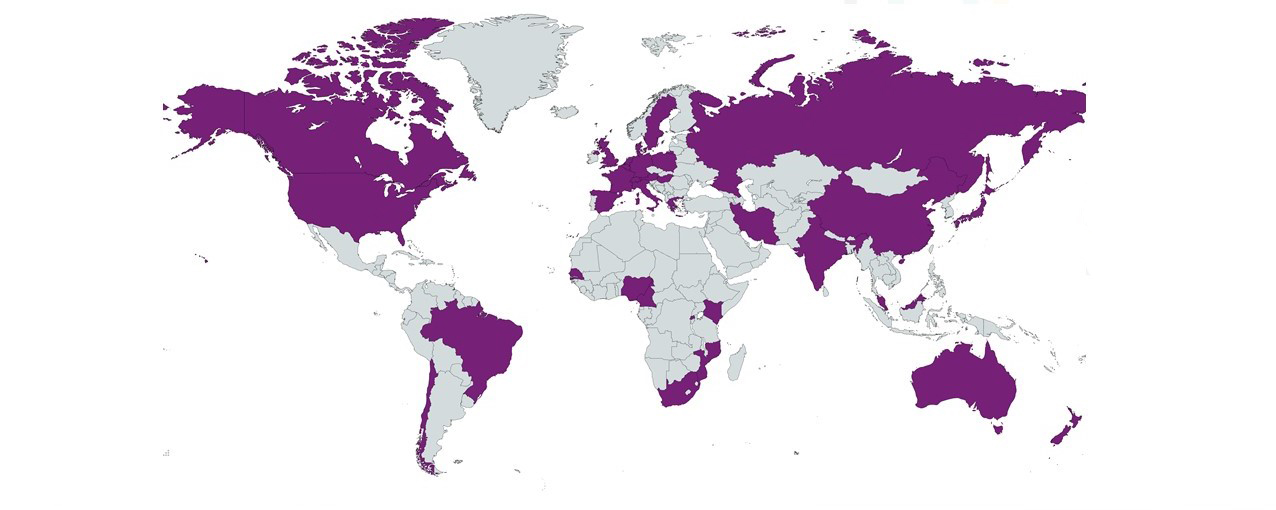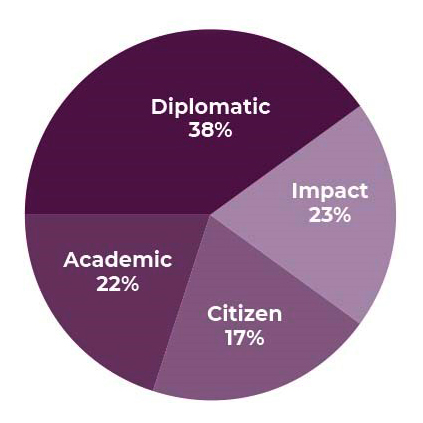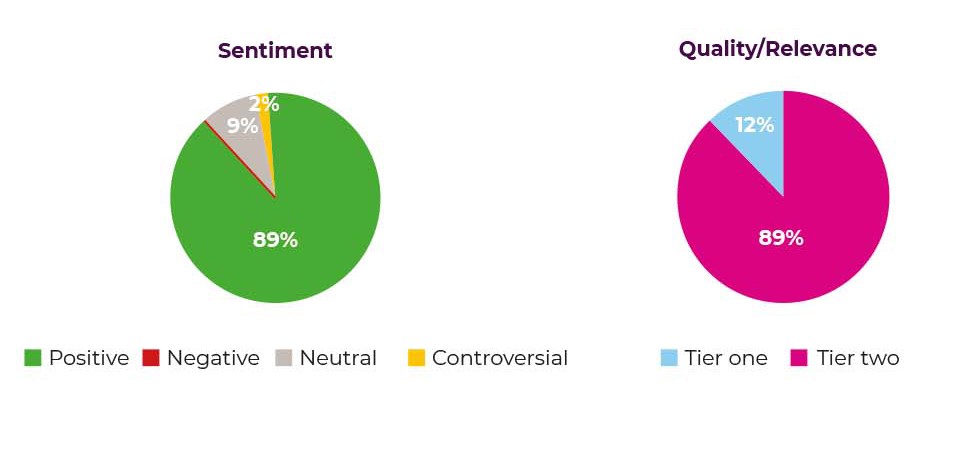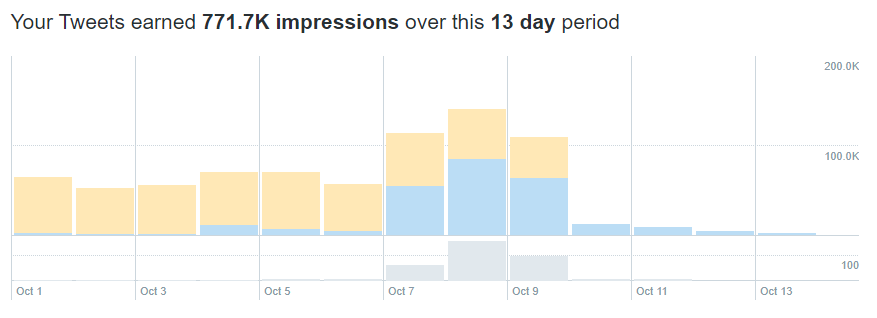Executive summary
In the midst of the COVID-19 pandemic, at a time when infection rates were rather low and international travel possible, the inaugural Geneva Science and Diplomacy Anticipation Summit (or GESDA Summit) took place 7–9 October 2021 in Geneva, at Campus Biotech, where GESDA is headquartered. Widely considered as a success from the charts and numbers, this hybrid event attracted overall more than 900 participants, 38% of whom being politicians and diplomats, both onsite and online, including 108 speakers from 33 nations. Scientists and academics, diplomats, executives, investors, philanthropists and citizens gathered to participate in lively sessions and engaged discussions based on GESDA’s vision: “Use the future to build the present”.
Proceedings of the session
The Swiss and Geneva governments founded the GESDA Foundation in 2019 as a new tool to help the world cope with all of the breakthrough science and technological advances occurring at an unprecedented speed. These advances, sometimes difficult to understand, will reshape how we view ourselves as humans, relate to each other in society, and care for our environment. GESDA was developed to anticipate those future breakthroughs and their impacts, to accelerate the ways to drive collective benefits from them among others by leveraging the Geneva International ecosystem and the diplomacy community at large, and finally to translate those proposals into concrete solutions and initiatives on the ground, creating new ways for different stakeholders to contribute to a better future.
All these aspects were clearly put into light during this first Geneva Science and Diplomacy Anticipation Summit organized by the GESDA Foundation, showing very promising prospects for the relevance of anticipatory science diplomacy to help renew multilateralism. This vision was enhanced by Federal Councillor Ignazio Cassis, 2022 President of the Swiss Confederation, which co-founded GESDA, and head of the Federal Department of Foreign Affairs, in his welcome address: “There is a growing feeling that a new ‘Cold War’ is about to be fought over science and technology and the power they confer to the states, who master them. We must, therefore, reflect on how we can adapt, evolve, and respond to the challenges and opportunities of our time. We need to build the global governance of the 21st century which can only succeed if it is far-sighted, evidence-based and equitable. In this spirit, GESDA is designed as a new tool at the service of effective multilateralism, as a resource we wish to offer to the legitimate actors of international governance.”
The inaugural Geneva Science and Diplomacy Anticipation Summit set the stage for the unveiling of GESDA’s first flagship product: the GESDA Science Breakthrough Radar®. This document is a new global indicator of the most significant laboratory advances expected within the next five, ten and 25 years, in the first four scientific frontier issues selected by GESDA: quantum revolution and advanced artificial intelligence, human augmentation, eco-regeneration and geoengineering, and science and diplomacy. As a Swiss foundation and private-public partnership, GESDA strives to be an honest broker of science-backed information, remaining neutral and objective as it gathers ideas from consultations. Developed in partnership with the Fondation pour Genève, the Radar benefited from the collaboration of more than 540 scientists throughout the world. It will serve as a groundbreaking document for further public discussions on the implications of emerging science breakthroughs for international affairs and multilateralism as well as science and technology governance. It first served as the “red thread” for the whole 2021 GESDA Summit.
The Radar was presented during the High-level Opening Plenary session in which renowned decision makers and politicians took part, including Maria-Francesca Spatolisano (Officer-in-Charge, Office of the Secretary-General’s Envoy on Technology and Assistant Secretary-General of the United Nations (UN), speaking on behalf of United Nations the Secretary-General), Tatiana Valovaya (Director-General of the United Nations Office at Geneva), Naledi Pandor (Minister of International Relations and Cooperation for the South African Government), Martina Hirayama (Swiss State Secretary for Education, Research and Innovation), Alondra Nelson (Deputy Director, Science and Society, White House Office of Science and Technology Policy), Sir Peter Gluckman (President of the International Science Council Chair and Chair of the International Network for Government Science Advice INGSA), Achim Steiner (Administrator of the United Nations Development Programme – UNDP), and Nathalie Fontanet (State Councillor of the Republic and Canton of Geneva). The report was largely praised by both the scientific and diplomacy communities. Martina Hirayama said: “From my point of view, what is very important here and for Geneva, and for the multilateral objectives GESDA has, is that the GESDA Science Breakthrough Radar® shows important developments for the future with high impact on our future life. It also shows where we should discuss the needs on the political side to develop [those advances] in a good way.”
During the Opening Plenary Session, a high-level panel addressed the questions of whether anticipation in science and diplomacy can help renew multilateralism.
“President Joe Biden has described our time as one of great perils and great promises,” Alondra Nelson said. “For those of us in government, to truly be of service, we really have a responsibility to be forthright about both those realities at once. And to be honest both about the risks of innovation and partnership, but also bold in addressing them head-on. And I think that GESDA is a fantastic possibility for working this through. Anticipation is filled, of course, with both enthusiasm and yet unease.”
Achim Steiner added: “One interesting question to explore is: ‘Can we make the transition from where science enabled us to understand the challenge, to how diplomacy can accelerate that capacity to act, notwithstanding different interests and geopolitics?’ I think multilateralism is absolutely fundamental to that.”
For Naledi Pandor, international collaboration must be aided and supported while dealing with current national challenges on the ground: “I tend to encourage the use of international partnerships for much more adventurous blue skies relationships and exploration, than perhaps the national institutions might be focused upon.”
And to Peter Gluckman, meeting that target will be possible only under one essential condition: “One of the things that this debate is highlighting is the need to make sure that all the sciences, in particular social scientists, are part of the discussion right from the start, rather than allowing the technological sciences to run ahead of the social considerations.”
During a Public Plenary Session held at the Graduate Institute for International and Development Studies Geneva (Graduate Institute Geneva) in a joint event organized by the GESDA Foundation, the Institute and the Diplomatic Club of Geneva, another distinguished guest, Enrico Letta (Secretary of the Italian Democratic Party; President of the Jacques Delors Institute; former Prime Minister of Italy; former Dean of the Paris School of International Affairs at Science Po – PSIA; and Member of GESDA Diplomacy Forum) reiterated the necessity of anticipation, but made his point with a distinctive argument: not anticipating will induce huge costs, as he showed with the example of the 2008 economic crisis, against which his country fully reacted only four years later: “In this precise example, the cost of non-anticipation has been disastrous in terms of human lives taken, of financial resources collapses.” The same applies for him to non-collaboration, as demonstrated by the current COVID-19 pandemic.
Other highlights of the Plenary Sessions included the final reporting session where three young thinkers under their 30s, coming from the business, scientific and socio-economical communities, told the audience how thrilled they were to see the worlds of science and diplomacy coming together to address the questions about their own future, and the chance they felt to be part of that discussion, wishing for more young people to join them. “I honestly wish that [science and diplomacy anticipation efforts such as those put in place by GESDA] were coupled with the sort of political reform we need – not just domestic context, but also international institutions. And we are able to bring these two things together and make a real difference,” said Keshav Khanna, Master’s student in International Affairs from India, currently at the Graduate Institute Geneva. They were then joined on stage by the Swiss astrophysicist Didier Queloz, 2019 Nobel Prize Laureate in physics, who, while explaining his new project of an institute dedicate to the search for the “origin of life” at Swiss Federal Institute of Technology Zurich (ETHZ) and the University of Cambridge, made a strong plea for un-driven fundamental research, for the breaking of scientific silos, for much broader interactions with social sciences as well as for wider communication actions towards the general public.
Sixteen plenary and parallel session formed the core of the 2021 GESDA Summit programme. Most of them were chosen from the 18 emerging topics and 216 possible breakthroughs identified in the GESDA Science Breakthrough Radar®. They were organized based on the four Scientific Frontiers Issues at the core of GESDA’s work as well as along three tracks related to the three actions keywords describing GESDA’s methodology: Anticipate, Accelerate, Translate. Poling tools were used during the session to take the pulse of the audience and engage the discussions.
Through a so-called “Anticipatory Situation Room” exercise (the Anticipatory Situation Room process being the implementation tool and methodology developed by GESDA to bring together its academic and diplomacy communities), all sessions gave rise to interesting interactive debates among the panellists and with the attendees, some pointing to ideas where GESDA could play a possible role in the future. For example by helping address the need to establish an international body wider than the UN circles, which would include the new space race private actors, to deal with the necessity to draw new governance treaties in space; by participating in establishing soft laws to go along with artificial intelligence (AI) rapid developments, as hard laws will likely be impossible; by fostering an initiative that would make sure that quantum technologies remain accessible globally, also to countries which do not have the means to develop them by themselves; by accompanying wisely, on the international legal level, the bursting developments around brain-computer interfaces, the acquisition and use of brain data; or by reviving the human right to science, just to name a few.
Through this very rich inaugural GESDA Summit programme, scientists and diplomats, business leaders, philanthropist and citizens got together in a nice and inspiring atmosphere to take part in and contribute to reflective, responsible, inclusive and sustainable collaboration, bringing anticipation-based science and diplomacy to the fore. A lot of goodwill for further collaborative actions with GESDA was shown by the participants, of which many have now become close interlocutors to GEDSA, and allowed the GESDA Foundation to widely enlarge its network.
Although the 2021 GESDA Summit was not a fully public event (for capacity reasons at the venue), tens of representatives from the citizens community did attend the event. Additionally to the public plenary session with Enrico Letta, and to extend the reach to the general public on the issues of science and diplomacy, GESDA collaborated with the initiative Tomorrow.Life to organize, in the framework of the local theatre festival at Théâtre Saint-Gervais in Geneva running the same weekend, a stage reading of the American play The Frozen Sea, which explores the convergence of art and AI in the near future. This side event attracted undisputable attention.
Apart from the core programme, two major announcements were made during the 2021 GESDA Summit. First, GESDA announced it will work with the XPRIZE Foundation on a global competition on quantum computing as part of a new partnership that includes XPRIZE setting up its European headquarters in Geneva, alongside GESDA at Campus Biotech. The joint GESDA-XPRIZE Quantum competition is one of the elements planned in this new partnership. Second, GESDA announced that 16 Geneva, Swiss and global institutions are joining forces to train future and current leaders who can bridge the worlds of science and diplomacy.
Geneva
- GESDA Foundation
- University of Geneva
- The Graduate Institute Geneva
- CERN
- Geneva Science-Policy Interface (GSPI)
- Geneva Centre for Security Policy (GCSP)
- Inter-Parliamentary Union (IPU)
- United Nations Institute for Training and Research (UNITAR)
- SDG Lab Geneva
- DiploFoundation
Switzerland
- Swiss Federal Institute of Technology Zurich (ETHZ)
- University of Zurich
- University of St Gallen
- Asuera Stiftung
World
- International Network for Government Science Advice (INGSA)
- Foreign Ministries Science and Technology Advice Network (FMSTAN)
In terms of communication and visibility, the inaugural GESDA Summit raised considerable interest in the media. More than 500 articles, video broadcasts and radio interview or podcasts appeared in the two weeks leading up to and including the Summit, appearing in more than 33 countries, reaching an estimated 800 million people, and thereby giving a worldwide attention to Geneva as being a hotspot for science and diplomacy.
The coverage was largely positive, Geneva-based daily quality newspaper Le Temps claiming in an editorial that “GESDA [is] the quantum leap need for International Geneva”, also calling the Foundation “undoubtedly the best thing that has happened to international Geneva in years”. In the same media, Enrico Letta stated that “GESDA is an intelligent initiative that brings together science and diplomacy. For Geneva, this is a huge opportunity.” The Associated Press (AP) news agency, with global distribution, also noted GESDA’s relevance: “While conceived in 2019, GESDA has started to look prescient during the COVID-19 pandemic that caught many governments off guard, drew an un-certain or unclear response by health policy makers like the Geneva-based World Health Organization, and has exposed gaping inequality between the rich countries that have wide access to vaccines–and poor countries that don’t.”
Finally, GESDA has made a significant impact on social media in the run-up and during this inaugural Summit as the hashtag #GESDAsummit was tweeted 1,184 times between October 5–13 only, by 392 users (among which key influencers of the field) with a potential reach of more than 9.1 million users. The contents of the social networks included short video interviews shot with the GESDA Summit participants and speakers at a dedicated television booth that was set next to the main auditorium of the venue.
A first of its kind, the 2021 Geneva Science and Diplomacy Anticipation Summit reached its general objective, to create an event as a unique opportunity to bring the most essential scientific issues out of the laboratories and to the attention of world leaders, politicians and diplomats, creating a positive global effect to foster a renewed multilateralism largely based on science advances, in an effort to safeguard our collective welfare and make the most, for all on the planet, of where knowledge takes us. “We had invaluable inputs. We had creative and motivating comments and messages. They were full of knowledge and of wisdom. And all with intention to help GESDA to find its way into the future,” thanked Peter Brabeck-Letmathe, GESDA Chairman of the Board of Directors, in his Closing Address. “GESDA can be and should be relevant for all stakeholders. But I also know very well that the relevancy will only last as long as you all have trust in our work. Trust in GESDA as an honest broker which works in a fact-based, transparent and inclusive way. Those are the fundamental conditions at which GESDA can perform its duty as a builder of bridges, between the scientists and the politicians, but also with the involvement of the civil communities from all over the world and in the respect of cultural diversity.”
Programme
Total number of sessions: 19 (over four half days, spread over three days)
Plenary Sessions: 6
Parallel Sessions: 12
Public Plenary Session: 1
Public Event: 1
Networking cocktails and reception: 2
Invited speakers
Onsite: 91
Online: 17
Speakers and moderators came from 33 countries from the five continents

Participation
- Academic: 22%
- Diplomatic: 38%
- Impact: 23%
- Citizen: 17%

Press, media and social media
Press work
Three press releases during the Summit (1. GESDA Science Breakthrough Radar® & GESDA Summit; 2) GESDA-XPRIZE Quantum Competition; 3) Geneva Science and Diplomacy Capacity Building Initiative).
More than 500 articles, which appeared in 33 countries (mainly the USA and Switzerland, then Britain, Canada, India, Germany, Singapore, Austria, Italy, Hong Kong, Swaziland, and France), reaching an estimated 800 million people across the world.

Social media
GESDA has made a significant impact on social media in the run-up and during the Summit from
7–9 October 2021. As of 1 November 2021, GESDA had
- 3,586 followers on Twitter
- 1,579 followers on LinkedIn


Tweets mentioning the #GESDAsummit from 5–13 October 2021.
The tweets sent in the first half of October have generated 770,000 impressions.


